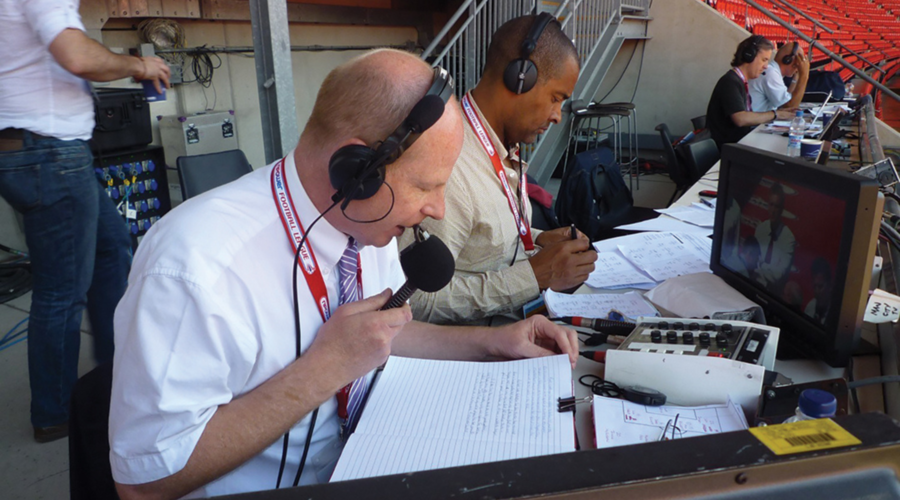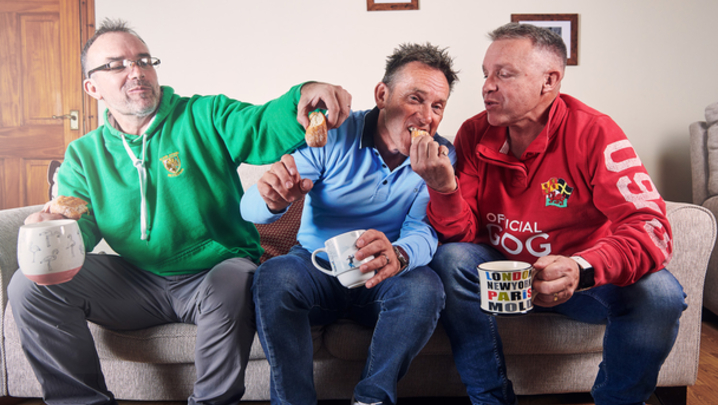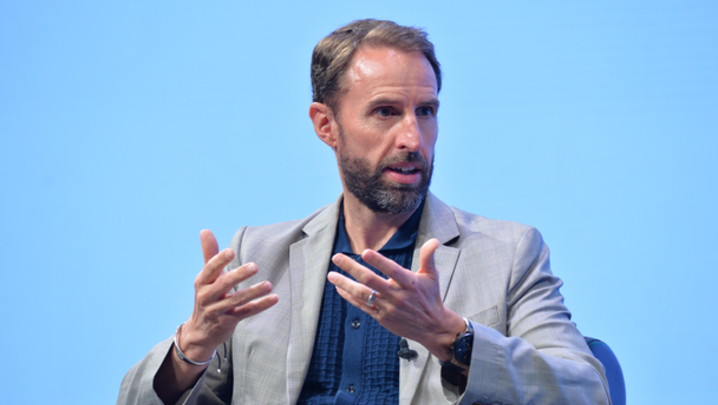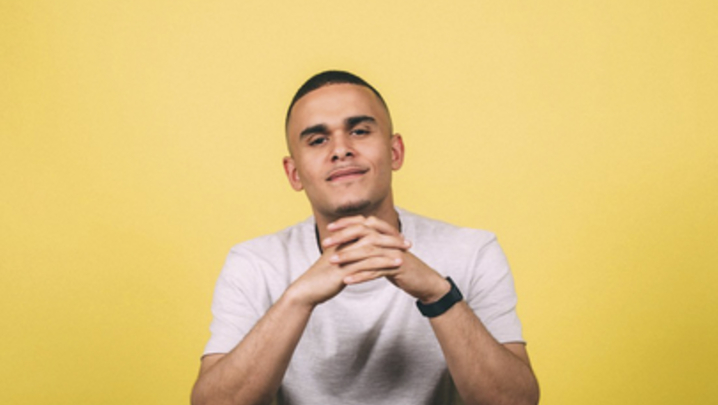John Roder has worked at seven World Cups for FIFA TV and was in Paris this summer for Olympic Broadcasting Services. This is his 21st season of commentating for the BBC’s Match of the Day while also working on the English Football League, European leagues and much besides.
Football has taken you around the world. Is it a good life?
I’ve worked on all five continents and I love it. But you need the work to keep coming in. Like many in the TV industry, I’m freelance and have been for 30 years. Covid, when there was no live sport for five months, was a challenging time financially.
How did you get started in TV?
I started on the Sky News sports desk in 1994, having worked in local radio and what was then BBC Radio 5.
What was the first match you commentated on for TV?
Coventry vs Newcastle in 1995– a feed for pubs and clubs in the north-east. My first radio commentary was in 1987: Everton 1, Coventry City 2 for Mercia Sound in Coventry.
Did you always want to commentate?
I found my niche at university. It was the mid-80s, and I wanted to be like David Jensen and John Peel, the “rhythm twins” on Radio 1. On college radio, I played bands like Joy Division and Echo and the Bunnymen. I did end up on Radio 1 though – doing the sport on the breakfast show with Chris Evans and Mark and Lard. It was a job-share with Clare Balding.
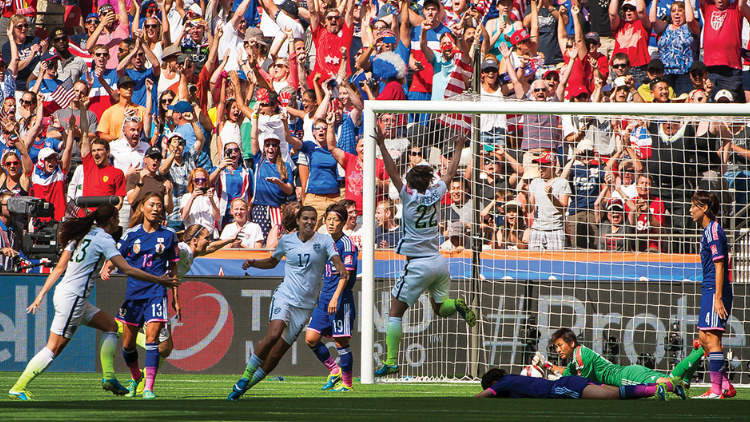
Do you always work live from the ground?
For Match of the Day and FIFA TV, we’re always at the stadium. Probably 60% of my other work is done off a television. That isn’t new – when I worked for Channel 4’s Football Italia Mezzanotte in the late 1990s, we did it that way. I’ve done probably 1,000 matches from Italy and been there once to do a game.
Does the viewer lose anything?
Yes, I only see what the viewer sees. If something happens off-camera, I don’t see it, so I can’t commentate on it.
What was your best game?
The 2015 Women’s World Cup final in Vancouver – the United States beat Japan 5-2, and doing the world feed for FIFA TV was special. It was 4-1 at half-time and Carli Lloyd scored a hat-trick with her third from the halfway line. It was one of those days when everything was right.
What do you bring to work with you?
An open mind, my notes, glasses (and spare glasses), press pass and an iPad.
How vital is pre-match research?
Commentary is a weird thing – it’s 90 minutes of unscripted telly. It could be the greatest entertainment ever or a snorefest. You’ve got to prepare for every eventuality. But I don’t like watching a match where the commentator has researched everything and is determined to tell you it all. In reality, you should only need 10 to 15% of what you’ve researched, because for me silence is golden in a commentary – and it’s disappearing from sports coverage. There’s too much chat.
Listen to Martin Tyler’s “Agüero moment” when Manchester City won the Premier League in 2012. He screams “Agüerooooooo” … and then doesn’t talk. It’s great; the shots that follow of the frenetic celebrations say it all. TV is not like radio commentary where you can go off at a tangent. A good commentator is like a good referee – you shouldn’t notice them.
But even the most exhaustive research can’t cover every eventuality?
No. You can get a cut-away of people in the crowd, and you haven’t got a clue who they are. Clive Tyldesley has a line, which I’ve nicked. If I’m doing, say, a Champions League game in Turkey and the camera lingers on people I don’t recognise in the executive seats. I’d say: “Anyone who is anyone in Turkish football is here tonight.” Or if there’s a shot of a celebrity and I can’t put a name to them: “Some famous faces in the crowd here.”
Are there any other tricks of the commentary trade you can share?
Hold back on the goal scorer’s name until you’re sure who it is. If a commentator has doubts, you’ll hear something like: “What a time for Rovers to score, just before half-time…. And what a goal to bring them back on equal terms… and it’s Smith who’s got it.”
Do you get nervous before a game?
Everyone in live TV has moments of doubt before they go on air. Then you remember you’ve done it before and can do it again. I commentate on about 100 games each season.
Have you made any verbal gaffes?
Yes, I said: “His legs couldn’t keep up with the rest of his body.” I knew what I meant to say; it just came out wrong. It went into Private Eye’s “Colemanballs” column.
What are the best and worst parts of the job?
The best is meeting up with people on the circuit – you make lots of friends and there’s a bit of gossip too. There isn’t a downside, to be honest.
What qualities do you need to be a commentator?
The secret to being a good freelance commentator is to turn up, do the job well, and don’t be a diva. You’re a team player; you just happen to be the person on air. Be a nice person – there are always people coming up who want to take your place.
What advice would you give to an aspiring commentator?
Get some experience. With the explosion of social media and YouTube, many more non-league clubs now have commentaries on their own games. The route I followed – local radio, national radio, Sky, regional ITV, national TV, international TV – doesn’t exist any more. Practise and practise off the TV at home, but be yourself. You don’t want to copy people like Peter Drury or Guy Mowbray – but watch and listen to them and learn, and try to incorporate what you like in your own style.
You’re active in the RTS in Devon and Cornwall…
As a region, we’re a bit detached from the rest of the country. We’re trying to bring TV people in Devon and Cornwall together because, apart from Twofour, we haven’t got big companies based here. We also want to show students, such as those I teach as a visiting lecturer on the journalism course at Plymouth Marjon University, that they don’t have to leave the region to have a worthwhile career in TV. It’s easy to zip up from Devon to London for work.
Who’s your favourite commentator?
The late Brian Moore. As a boy, when I wasn’t allowed to stay up for Match of the Day, I watched ITV’s The Big Match religiously on Sunday afternoon.
Do you have any commentating ambitions left?
Just to keep going, and keep enjoying what I do. I’m a very lucky person to be able to do this for a living.
John Roder was interviewed by Matthew Bell.

